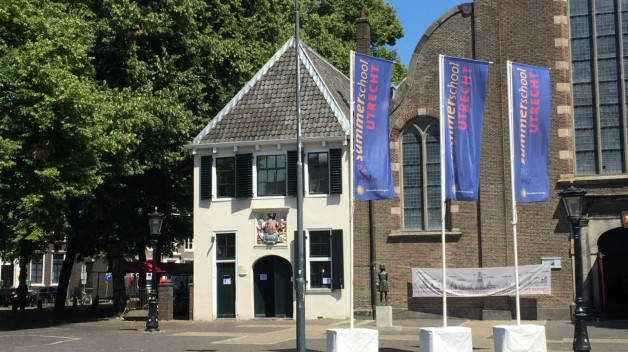
Who are we?
The Utrecht Summer School is characterized by its strong academic courses covering a wide range of subjects. In 1986, Utrecht Summer School started with one course: Dutch Culture and Society. Nowadays, 38 years on, the summer school has developed a broad selection of about 160 courses in many different disciplines.
- Humanities
- Art & Music
- Language
- Life Sciences
- Healthcare
- Social Sciences
- Science
- Law
- Business & Economics
- Engineering & Technology
Organising Institutions
The Utrecht Summer School is a partnership of Utrecht University, HU University of Applied Sciences, HKU University of the Arts and the University of Humanistic Studies. These institutions of higher education offer high quality, fully accredited summer courses at Bachelor's, Master's and PhD level. All courses are taught in English. For most of the courses EC credits are awarded. In 2023 the Utrecht Summer School hosted over 150 courses (in which 3,000 students enrolled), in face to face, hybrid and online classrooms.
Utrecht Summer School aims to provide its participants with an unforgettable stay in Utrecht and The Netherlands. In addition to the study programme, there is an option to make use of the campus sporting facilities as well as a varied social programme, including night canoeing through the canals of downtown Utrecht, pub quizzes, scavenger hunts and bowling nights.
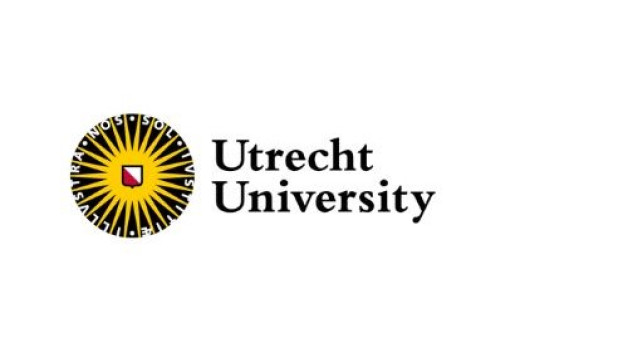
Utrecht University
Located in the heart of the Netherlands, Utrecht University is firmly founded on tradition. It offers a broad spectrum of disciplines, innovative research and it liaises with universities and research centres all over the world. Utrecht University is a wide-range research university of high standing. Its interdisciplinary research targets four themes: Life Sciences; Pathways to Sustainability; Dynamics of Youth; Institutions for Open Societies.
Utrecht University is linked to the names of many prominent academics among whom Buys Ballot, Donders, Rudolf Magnus, Van Unnik and Freudenthal. The list also includes Nobel Prize Winners such as Gerard 't Hooft from the Science Faculty (Theoretical Physics).
Utrecht University has a strong connection to the city of Utrecht.
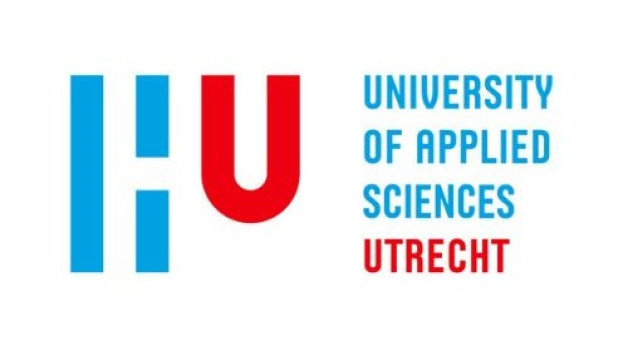
HU University of Applied Science
HU University of Applied Sciences (HU) was founded in 1995, the result of a merger of several independent institutions. The HU is the third largest university of applied sciences in the Netherlands and is funded by the state. It has over 37,500 students (including 1,200 international students) with more than one hundred different nationalities. The HU offers a wide range of courses spread within nine principal themes. Most of the 80 programmes lead to a Bachelor’s degree, and some lead to a Master’s degree. Several programmes are taught in English.
- To prepare students for their future career, the international programmes have some unique aspects:
- Competence-based education to provide excellent professional skills
- Individual supervision and a limited number of students per group
- International experience: study abroad
- Work experience at international companies
All courses are geared towards the practical aspects of the disciplines and the teaching is competence based with the emphasis on professional skills and work placements.
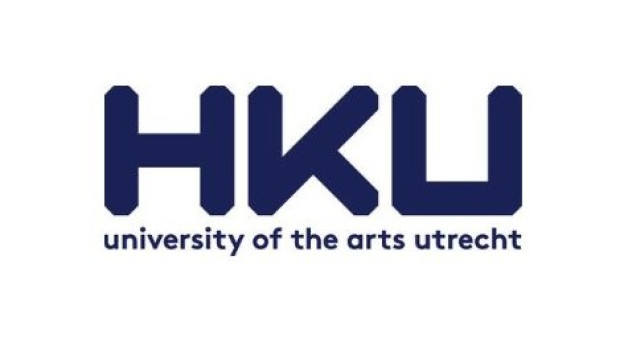
HKU University of the Arts Utrecht
HKU University of the Arts Utrecht is the largest educational institution for arts, culture and media in the Netherlands, and one of the largest in Europe. Located in Utrecht, HKU has 4,000 BA, MA and research students taking part in nine bachelor programmes and six master programmes of which three in English validated by the UK Open University.
HKU offers challenging and innovative education and research trajectories in design, media, games and interaction, music and technology, fine art, arts management, theatre and music. HKU is renowned for producing many digital and interactive media pioneers and its applied research in the areas of creativity, digital design, entrepreneurship and social innovation has had a strong impact in the cultural and creative industries and beyond.
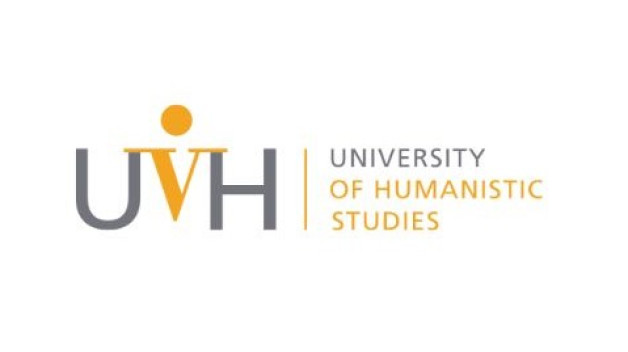
UVH University of Humanistic Studies
The University of Humanistic Studies is an independent, government-funded university. In our research and education we focus on contemporary issues with regard to leading a meaningful life in a just and caring society. Our transdisciplinary approach integrates philosophy, history and the social sciences. Inspired by a humanistic worldview and tradition, critical education and personal training go hand in hand in our study programmes. Thanks to its small scale (ca. 550 students) and location in the historic centre of Utrecht, we enjoy a personal working and studying atmosphere at the university.
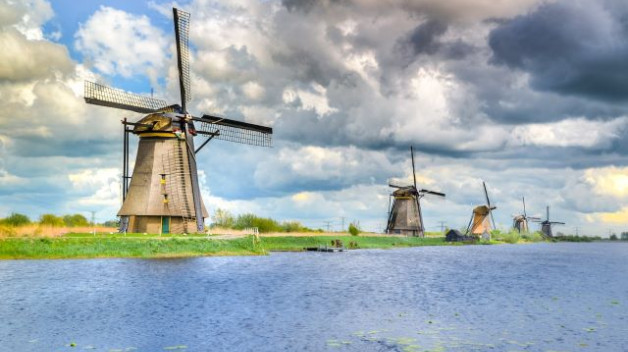
Meet the Netherlands
We would love to welcome you in Utrecht, The Netherlands, during one of our Summer School editions. The Utrecht Summer School is based in the centre of the Netherlands, in the vibrant city of Utrecht.
The birth of The Netherlands as we know it today was in 1579 when the ‘Unie van Utrecht’ (Union of Utrecht) was signed. The Union, a cooperation agreement between different states and cities, is generally seen as the beginning of the Netherlands. Many wars were fought, often with a religious motive. International trade became important, especially in what is known as the Golden Age (1600-1700), which was a period of notable achievements in arts and sciences.
The Netherlands (also known as Holland) has its name for a reason: the country is extremely flat and about a quarter of the country is below sea level. Water can be found everywhere, in the form of lakes, rivers, canals and the sea. The parts of the Netherlands below sea level would be flooded if there were no dikes, dunes and other fortifications. The city of Utrecht and most of the province of Utrecht– you might find this reassuring to know – are above sea level!
With 17.5 million inhabitants and a population density of 507 people per km2, the Netherlands is, after Malta, the most densely populated country of the European Union. The Netherlands is a constitutional monarchy with two houses of parliament. International trade is the main engine of economic growth. In fact, The Netherlands is the 16th largest economy in the world and one of the ten leading exporting nations. The country’s most important trading partners are its neighbours Germany, Belgium, the UK and France.
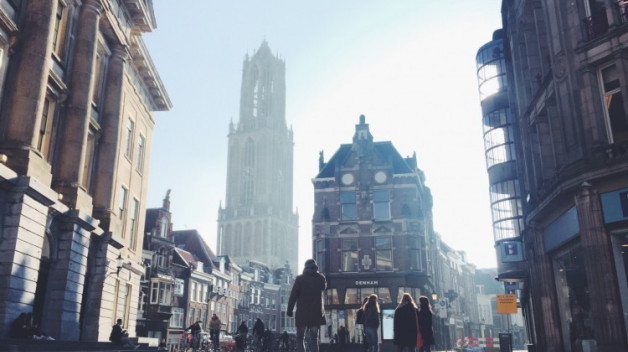
Meet Utrecht
Utrecht is the Netherlands' fourth largest and most centrally located city. Utrecht is incomparable to any other place. Where else can you have a beer or a delicious meal right beside the canal? What other city has such a striking and easily recognisable landmark as the Dom Tower, which is more than 600 years old? A city with a friendly shopping heart, friendly street cafés, as well as a bubbling night life, with busy pubs and cafés, simple eateries, but also stylish restaurants and contemporary congress and meeting centres.
Utrecht’s canals and wharves form a true attraction. No other city on the planet has as many pedestrian quayside paths. They were put there centuries ago to provide access to the cellars under buildings along the canals. Currently restaurants and boutiques occupy many of these cellars. The wharves themselves are always busy and along the water one can find many good places to eat.
With regard to museums, this city has more than its fair share to offer. Utrecht is especially proud of its unique Museum Quarter. In the Museum Quarter there are seven large museums, of which the collections are closely linked with the city's past and present. Or join one of the cultural events! An example is the internationally known Holland Festival of Old Music, the Wharf Area Theatre Festival (with acts both on and off the wharves), the Festival of Modern Dance, the Spring Dance Festival and the Dutch Film Festival.
More inspiration needed? On this page you can find some amazing highlights in Utrecht & The Netherlands.
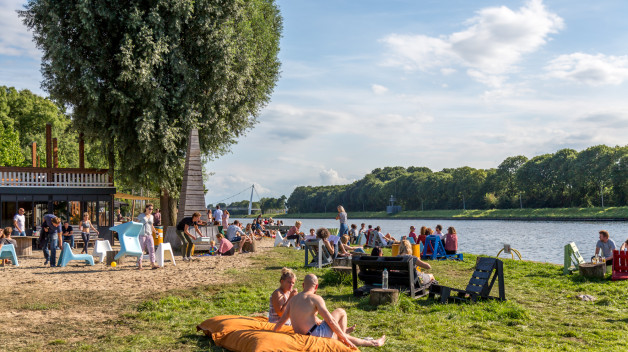
Meet the Dutch
Dutch society is home to over 190 different nationalities. For decades, the country’s historical ties with other parts of the world have brought people of non-Dutch origin to settle in The Netherlands. This cultural diversity has made it a place where knowledge, ideas and cultures from all over the world come together. Although Dutch is the national language, the majority of the population also speaks English and very often another foreign language, such as German or French.
Some remarks often made by foreign visitors are: the Dutch in general are very modest in showing their appreciation for anything or anybody, including themselves. The Netherlands is a ’self-service country’. The Dutch try to manage most things themselves, which makes them independent and organized. They are often considered very open and direct in their social interaction and can therefore seem blunt. Their views, like their policies, are often looked upon as being progressive. Dutch society is organized in a non-hierarchical way. For example, teachers tend to be very accessible and true interlocutors for their students. This doesn’t mean they don’t appreciate their traditions such as the celebration of the King’s birthday and the feast of Saint Nicholas.